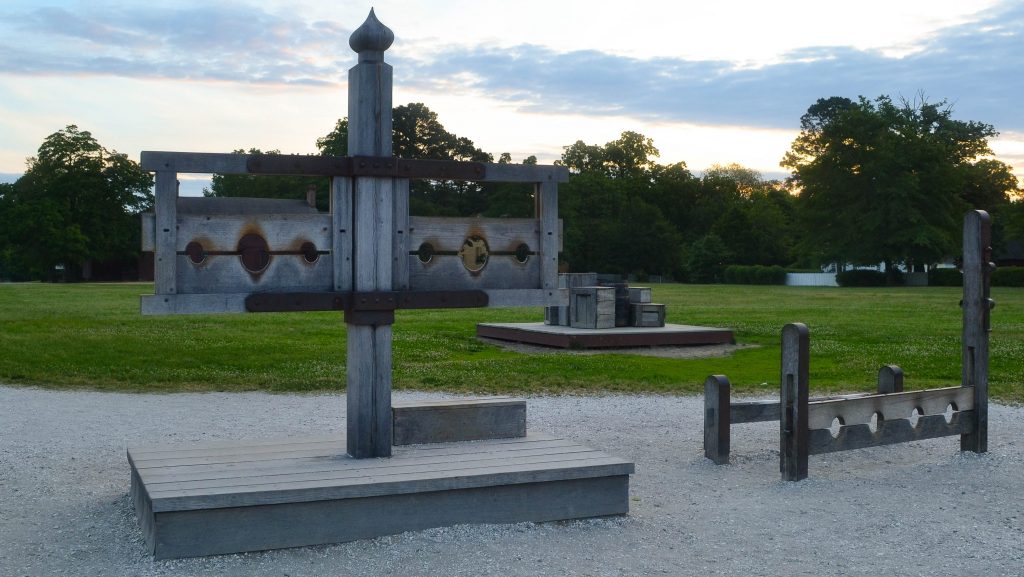Colonial Williamsburg in Virginia does a wonderful job of teaching the ideals on which America was founded. And it does an equally fine job of showing how unglamourous early American life could be.
In the 18th century, a couple of hundred crimes were capital offenses in Virginia. These included rape, arson, theft, piracy, and murder. Typically, execution was swift and by hanging.
If one were lucky, reprieve meant branding with a hot iron on the fleshy part of the palm.
Even non-capital crimes yielded corporal punishment, e.g. whipping, or time in the pillory or stockade.
Imprisonment, life or otherwise, was unheard-of as a sentence. The public gaol was where suspects awaited trial.
If they were convicted, they returned to the gaol to await public hanging, three at a time, on a simple gallows.
Punishment was public, and meant to deter others from committing similar crimes.
As America’s Declaration of Independence asserts, the purpose of government is to secure people’s rights. And government at the time would severely punish those who violated the rights of others.
After my misspent youth as a wage worker, I’m having so much more fun as a blogger, helping other discerning travellers plan fun and fascinating journeys. Read more …

